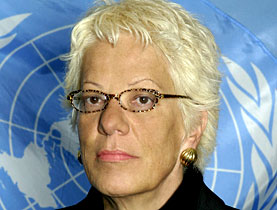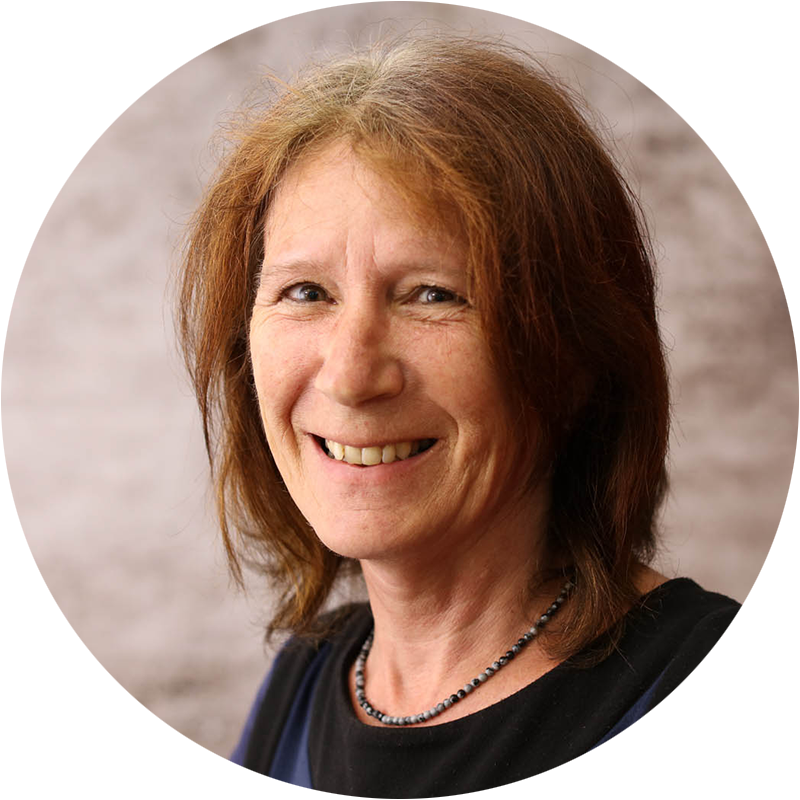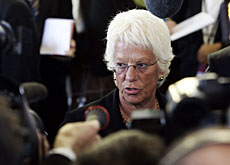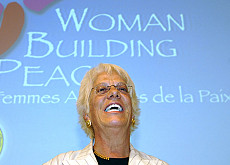“I have learned a lot about the horrors of war”

Carla Del Ponte tells swissinfo about the ups and downs of her time as chief prosecutor of the International Criminal Tribunal for the Former Yugoslavia.
Del Ponte, who leaves the United Nations post at the end of the year, is to become Swiss ambassador to Argentina.
swissinfo: How do you feel about leaving?
Carla Del Ponte: I am ready to move on. I have been doing this job for more than eight years and I am looking forward to the new challenge.
swissinfo: How do you judge the results of your work as chief prosecutor? Did you achieve what you wanted to?
C. D. P.: My colleagues and I have achieved a great deal. We have issued initial indictments against 63 individuals and 91 accused were taken into custody. Trials against 44 of them have been opened and concluded. We have, among other things, proven that that genocide was committed in Srebrenica, that in former Yugoslavia rape was used as an instrument of terror and that the crimes against civilians during the siege of Sarajevo merit the highest sentence.
We have prosecuted a sitting head of state, prime ministers, chiefs of army staffs, police generals and high-level politicians. It is thanks to our work that the question is no longer if war criminals will be prosecuted, but when.
The tribunal has also provided justice to thousands of victims of crimes and given those victims a voice – more than 3,500 of them have testified in the tribunal’s courtrooms. The tribunal has always encouraged the justice authorities in former Yugoslavia to carry on with their work, to cooperate with the local authorities, and has thus initiated legal reforms in these countries.
The tribunal has also contributed to the development of international law and the creation of other international courts, including for Rwanda, Sierra Leone and Cambodia.
swissinfo: Your biggest triumph was the detention of the former Yugoslav president, Slobodan Milosevic. But you didn’t manage to arrest Bosnian Serb leader Radovan Karadzic and army chief Ratko Mladic. Disappointed?
C. D. P.: I am still hopeful that they will soon be arrested.
swissinfo: Why didn’t you succeed in arresting these two war criminals?
C. D. P.: First of all, the tribunal has no police force of its own to make arrests. The fact that Mladic and Karadzic are still at large is mostly due to the failure of the international community to arrest them immediately after the war and the failure of successive governments in Serbia to do so following the fall of Milosevic.
It is only now, in late 2007, 12 years after the war, six years after the fall of Milosevic, and nine months after the decision of the International Court of Justice which declared Serbia responsible for failing to prevent genocide in Srebrenica, that it appears that there is true political will in Serbia to arrest Mladic.
swissinfo: Did you receive enough support from the European Union and the United States?
C. D. P.: We have had different levels of support over the years – sometimes it was very strong, sometimes less so. However, without the support of the international community, we would not be able to complete our mandate.
In recent years, the EU policy of conditionality – that cooperation with the tribunal would trigger financial support or lead to membership of an international organisation – has proved to be the most effective tool in compelling the authorities in Belgrade and Zagreb to fulfil their international obligations and work with the tribunal.
This policy accounts for the majority of the more than 30 fugitives that have come into the tribunal’s custody in the past three to four years. We still count on the EU to insist on Serbia’s full cooperation with the tribunal as a condition in the EU accession process.
swissinfo: Your daily work involves massacres, cruelty and potential war criminals. Has your work influenced your opinion of mankind?
C. D. P.: I have learned a lot about the horrors of war. But that has not really affected my opinion of people in general. As we can see with what is happening around the world, people everywhere are capable of horrific violence.
That is why it is all the more important to have fully functional judiciaries, both at the national and the international level.
swissinfo: This summer at a news conference in Brussels you said: “I’m no diplomat.” You are soon to become the Swiss ambassador in Argentina. Can you explain this contradiction?
C. D. P.: I see no contradiction. As a prosecutor, I cannot be a diplomat. As an ambassador, I will fulfil my diplomatic duties to the best of my ability.
swissinfo: How does Carla Del Ponte, as we know her, become diplomatic?
C. D. P.: With a different mandate come different responsibilities.
swissinfo: You’ve had to fear for your personal safety and you’re one of the best protected Swiss personalities – will this continue in Argentina?
C. D. P.: That will be the decision of the Swiss and Argentine governments.
swissinfo-interview: Gaby Ochsenbein
The International Criminal Tribunal for the Former Yugoslavia (ICTY), based in The Hague in the Netherlands, was established by the United Nations Security Council in May 1993. It started operations in December 1994.
It is responsible for prosecuting serious crimes that took place in the former Yugoslavia from 1991 onwards.
One of its most high profile cases was the trial that started in February 2002 against Slobodan Milosevic, the former Yugoslavian and Serbian president. Milosevic died just before the end of the trial in March 2006.
Some figures are still on the run, including Bosnian Serb leader Radovan Karadzic and army chief Ratko Mladic.
Del Ponte was born in 1947 in Bignasco, in the southern Swiss canton of Ticino.
She studied international law in Bern, Geneva and Britain.
In 1981 she became Ticino’s chief prosecutor, where she became well known for her fight against money laundering, organised crime and gun running.
Del Ponte was Swiss federal prosecutor from 1994-9, to a mixed reception, with some accusing of “activism”.
In 1999 the then UN Secretary-General Kofi Annan appointed her chief prosecutor at the International Criminal Tribunal for the Former Yugoslavia. She will leave this post at the end of 2007.
In January 2008 the 60-year-old will take up her new job as Swiss ambassador to Argentina.

In compliance with the JTI standards
More: SWI swissinfo.ch certified by the Journalism Trust Initiative



You can find an overview of ongoing debates with our journalists here. Please join us!
If you want to start a conversation about a topic raised in this article or want to report factual errors, email us at english@swissinfo.ch.